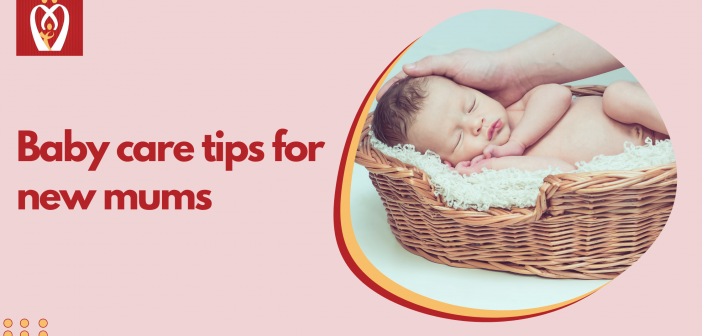The birth of your child brings you great joy and opens up a whole new universe. But, especially for first-time mothers, baby care might be a bit daunting at times. But don’t be alarmed; by following our baby care advice, you’ll be able to breeze through the first few months like an expert. Read more about Baby care tips for new mums.
Self-hygiene
Make sure you wash your hands or sanitise them before you pick up your infant to avoid infection and other sensitivities.
Ensure you’re holding your infant correctly
In order to properly hold your infant, her head should be placed in the crook of your arm, with your hand supporting the spine of your child. Use the other hand to feed your child, stroke his or her cheeks, or just rest it softly on the baby’s chest or stomach.
Don’t jerk your infant around too much
A baby’s brain may be damaged if you shake him or her. Even if you’re attempting to put her to sleep or just provide her some comfort, shaking her will not help. Make a lullaby out of rocking her softly back and forth.
Don’t be abrasive
A rough and tough game is not the place for your newborn. So it’s not a good idea to toss the baby around in the air or jiggle the baby around on your knees.
Skin to skin contact
Be aware that your kid requires time to adjust to the move from the womb to the outside world. So that she may feel your warmth and feel a connection to her mother, make sure she has plenty of skin-to-skin contact with you. Holding your baby close to your heart while providing enough of skin-to-skin contact will help her feel more secure and calm her senses, as your heartbeat was the only sound she heard while in the womb. When it comes to kangaroo care, even fathers can do the same thing. This is a must in baby care!
Tailored routines
Once you and your infant have established a routine, it may seem as if it takes no time at all to switch things up! As your child grows older, they will want fewer naps during the day and more time spent playing and being stimulated.
They’ll also need to begin eating solid foods at six months of age. As a result, you’ll need more time to cook their meals and clean up afterwards!
Your baby’s indications will become second nature as you get to know them better. Your GP would be pleased to offer advice if you’re having trouble settling into a routine that works for them.
Talk to your child frequently
Talking to your baby can have a number of unintended advantages. Baby brain growth and speedier word learning are two of its benefits. If you’re curious, it might also aid in strengthening your relationship with your child. The baby blues can be fought with a simple deed like this.
Check the diapers
Make it a habit to do this frequently. Every four hours or so, make sure the diapers are still dry. The urination of a healthy infant would be frequent. Diaper rashes can occur if a soiled diaper is left on a baby for an extended period of time.
Feed on demand
Proper feeding and adequate sleep are all that your baby will require in the early stages of her life. It’s going to be difficult to get your infant to sleep since, despite the fact that she’s expected to sleep 16 to 20 hours a day, she may not do it all at once. Every two hours or less, your baby will beg for food. Be ready to provide a feed upon request.
To avoid air intake, make sure your kid has adequate areola in his or her mouth if you decide to nurse him or her.
Be ready to put in the work if you choose to use a formula. Always have hot water on hand in the thermos, and make new food for her every time. Regardless of how much is left, toss it. After more than five hours of sleep, you should wake your baby to feed her if she has not had a meal. But be careful not to overfeed. You can try again if your baby refuses to eat after playing, cuddling, and singing a lullaby for a few minutes.
It’s important to bathe your infant correctly
Your infant will move from sponge baths to regular baths once the umbilical cord has been cut and the region has healed. When showering your child, be careful with your hands.
Even if you’re apprehensive about taking care of a newborn, you’ll be a pro in a matter of weeks! Your GP should be able to point you in the right direction when it comes to resources that can help you with baby care.




